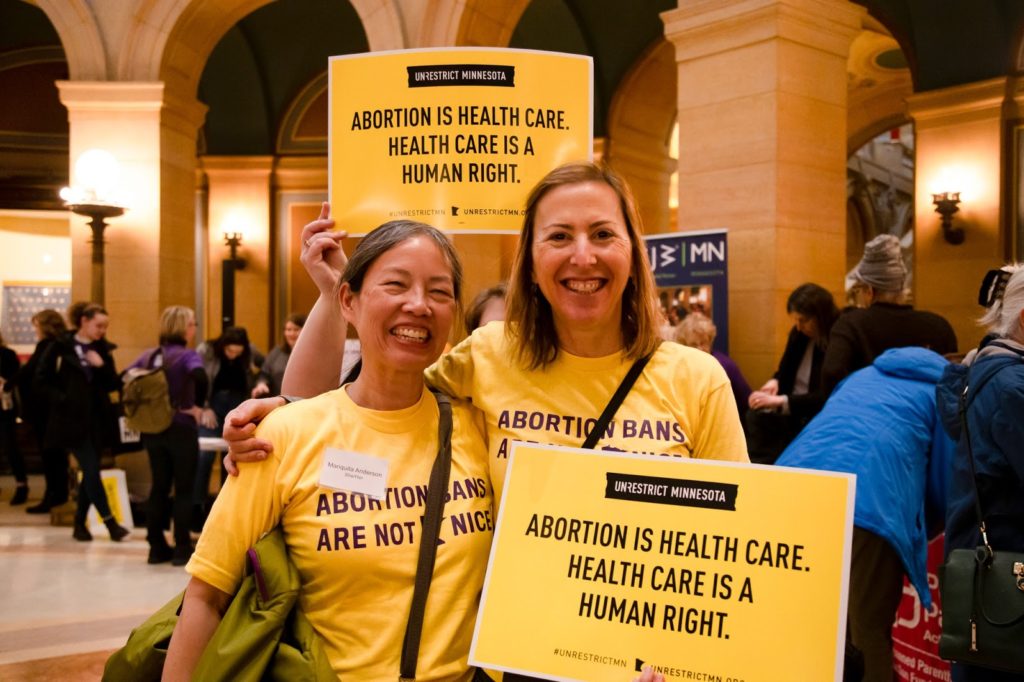Proteus Fund’s March 2022 Newsletter
Nearly a quarter of the way into a new year, funders and social justice organizations on the ground are still grappling with the ongoing impacts of the events of the past several years: the pandemic, an unprecedent presidential election, a post-election cycle that became a two-month attempted coup process, and further escalation of an all-out assault on communities of color. There’s a deepening sense of fatigue among individuals, organizations, and entire movements. Yet, at the same time, we all know it would be catastrophic if that exhaustion dulled our sense of urgency or undercut the collective social justice work ahead of us.
Between the general backlash to social change and another election cycle on the horizon, the toxic rhetoric of reactionary forces is cresting again, and bringing with it the added danger of rising political violence. Many state legislatures are passing reprehensible legislation on everything from voting rights and the independence of the courts to civil rights and the separation of church and state. A pending Supreme Court decision is poised to decimate Roe v. Wade, returning us to a time when women’s reproductive rights and access to safe abortions was nonexistent.
The Proteus Fund team understands what’s at stake this year and is laser focused on supporting grassroots organizations and advocates – through funding and other means – to push back effectively on all fronts. Our close relationships with field actors on local and state levels give us valuable perspective on what is happening on the ground. We are doubling down on our successful strategies, while also proactively in conversations around new effective ways to do our work. We are being creative in our approach to grantmaking, identifying intersections in the social justice movements we support to realize greater collective impact.
This newsletter features two ways in which our work is evolving to meet the moment and push for the inclusive, representative democracy we seek. I invite you to learn more about these efforts and how you might support them.
— Paul Di Donato

Anticipating challenges to democracy and core rights, and proactively supporting the field to prepare for those challenges, is fundamental to the work of Proteus Fund’s donor collaboratives. Knowing that the U.S. Supreme Court’s upcoming ruling in Dobbs v Jackson Women’s Health Organization will likely roll back access to abortions nationally, the Piper Fund and the Rights, Faith, and Democracy Collaborative (RFDC) have teamed up to support much-needed strategy and capacity at the state level.
The Dobbs ruling is expected to result in a patchwork of local abortion access laws that will differ from state to state, further exacerbating the racial and socioeconomic disparities related to reproductive health care. In this probable scenario, dozens of states will immediately criminalize abortion, while elsewhere, state constitutions and state courts will offer the last line of protection for these rights. At the same time, opponents of reproductive rights are also advancing bills and ballot measures to undermine judicial independence in some states, which could have a devastating, cascading effect on not just reproductive rights, but a whole host of hard-won rights and freedoms from LGBTQ equality to voting rights.
Proteus Fund donor collaboratives Piper Fund and Rights Faith and Democracy Collaborative are preparing the field to respond to these interconnected crises, so that as soon the Dobbs decision is announced, grassroots organizations and coalitions can implement state-specific responses. Messaging research is underway now, to craft clear and compelling messages that underscore the importance of both reproductive rights and a healthy democracy. Starting in late March, we will convene up to 50 advocacy groups from 19 states to share this research, and to provide an opportunity for these groups to plan their responses. Following the convening, they will have access to rapid response grants to support implementation of their collaboratively developed plans.
Drawing upon our close partnership with state groups, our expertise around both sets of issues, and our deep belief that strategic collaboration leads to greater impact, Proteus Fund’s donor collaboratives are poised to make a real difference for both reproductive rights and judicial independence, at a critical juncture.
In response to grantees sharing fear for their own safety, unspeakable doxing and harassment online, and sheer exhaustion, Proteus launched the Grantee Safety and Security Fund (GSSF) in 2020. The Fund awards grants to promote the safety and security and health and wellness of our donor collaborative grantees. In this conversation with Mad Phelps, of grantee partner OutFront Minnesota, we discuss OutFront’s use of the Fund.
OutFront, based in Minneapolis, works to create a state where lesbian, gay, bisexual, transgender, and queer people are free to be who they are and live without fear of violence, harassment, or discrimination.

What prompted OutFront to apply for Grantee Safety and Security Fund support?
OutFront felt compelled to support the safety of our organizers as they traveled to and worked in the state capitol during the pandemic and during a time of increased white supremacist violence and harassment of LGBTQ organizers. We had to remotely support LGBTQ+ victim/survivors of violence during a rise in overall hate crimes; remotely support youth who, due to the pandemic, no longer have access to their external support systems and are sometimes isolated in unaccepting home environments We are also going through a large organizational leadership transition, a data and operations transition, and absorbing the events in Minneapolis, our home base, after the murder of George Floyd.
In short, our staff needed both physical support to keep them safe as they traveled to and from the capitol and wellness support as they navigated the challenges of doing frontline social justice work during the pandemic, a racial justice uprising centered in Minneapolis, and significant organizational change.
How will OutFront use the support?
OutFront will provide staff with a wellness stipend that they can use to address their health and wellness needs as they see fit. We took this approach because our staff hold a variety of identities and experiences, and as a result, there is not a “one size fits all” solution to relieving staff burnout and stress. Our wellness stipend, therefore, includes three types of support: Mental health (e.g. therapy appointments, a meditation app subscription, medication, etc.); physical health (doctor’s appointments, acupuncture, health club membership, etc.); and/or Work-life balance (personal coaching, wellness trainings, etc.).
For physical and digital security, we will use this funding to provide staff COVID tests, PPE, parking passes close to the capitol to avoid the dangers of walking during a contentious time, and other travel expenses for our organizers to ensure their safe travel to and work within the capitol. We will also purchase new, more secure technology for staff who work with sensitive operations data.
What do you believe the impact will be of this support?
Organizing in the capitol can be incredibly stressful and even hostile for our LGBTQ+ organizers. Safe travel and PPE will allow them to feel more peace of mind as they do their important work and will help prevent them, their co-workers, and families from catching COVID-19. The new operations technology will ensure the data security of our staff, partners, and supporters. The health and wellness support gives staff the flexible resources needed to help them heal from the trauma of the past several years and build a healthier workplace culture during our organizational transition.